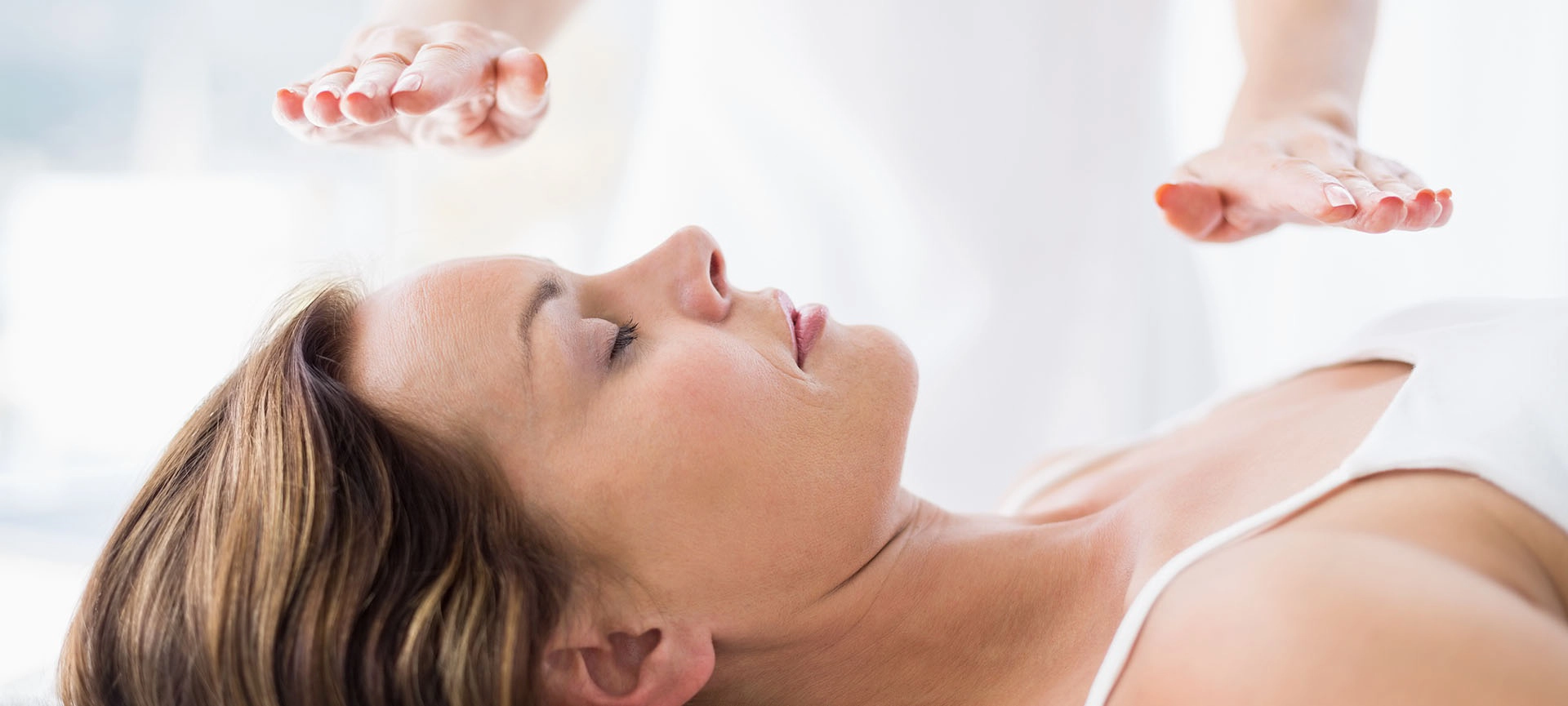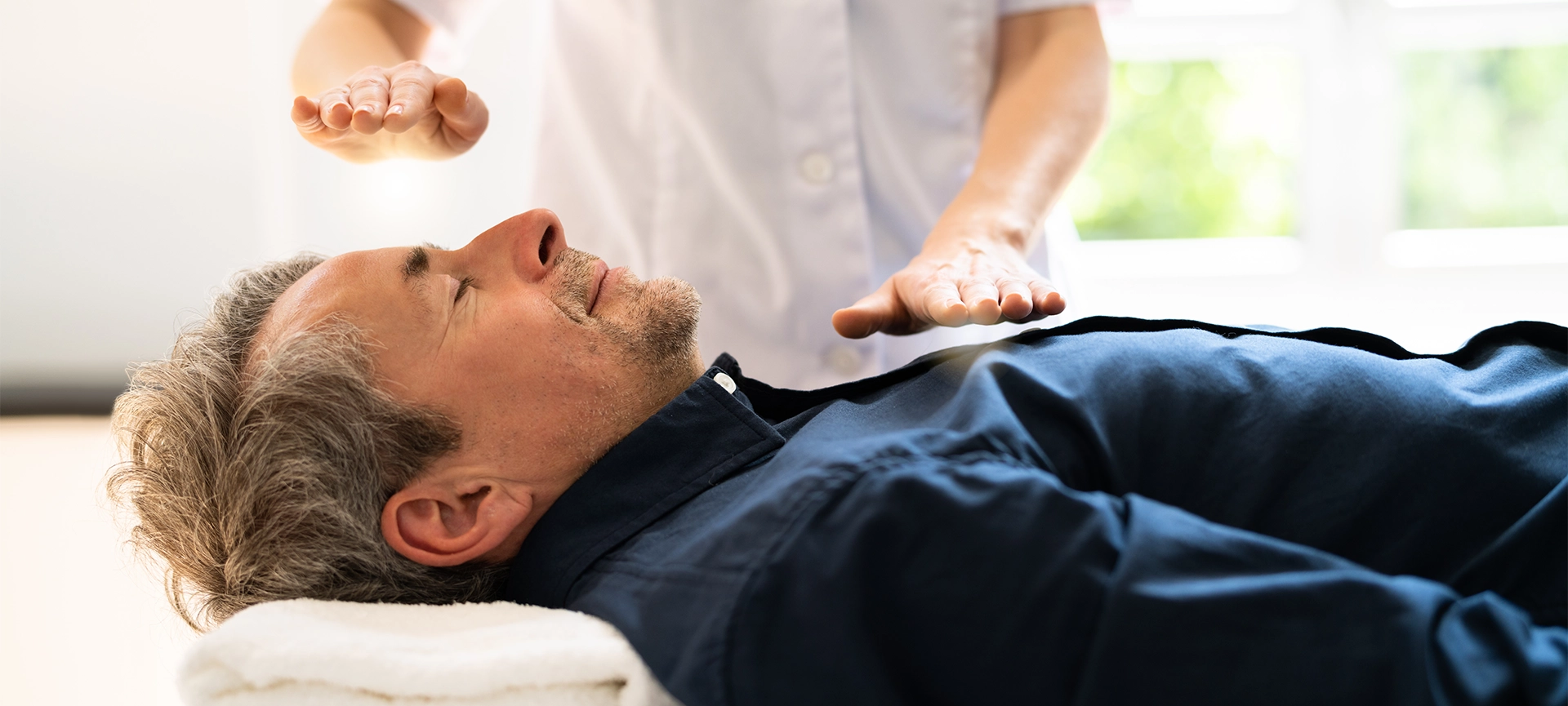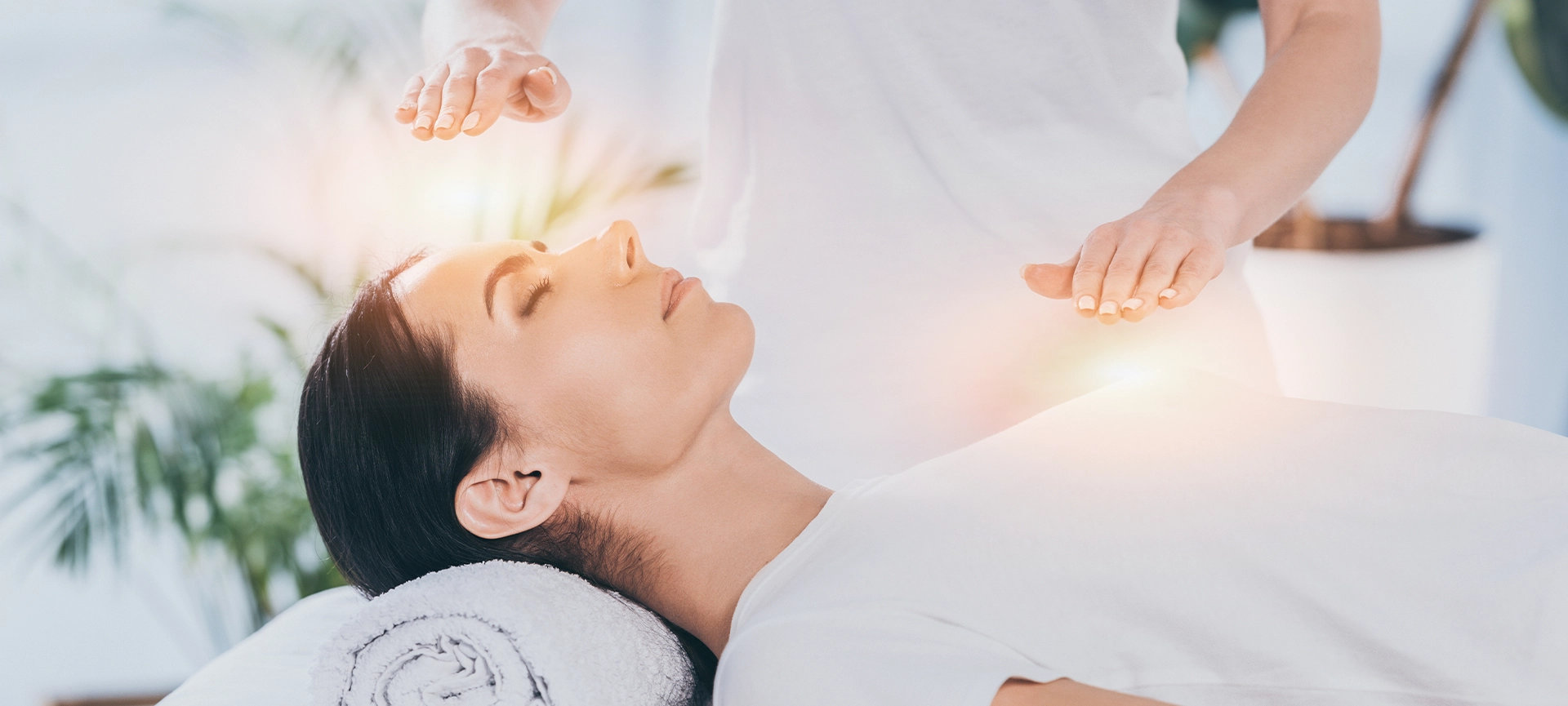Have you heard of reiki in Toronto but you don’t quite understand what it is? Are you considering trying it and want to figure out if it is right for you? Or maybe your doctor has suggested reiki as a form of therapy complementary to your existing medical treatments.
Whatever your questions, reiki masters are there to help. They walk you through the basics of reiki — a safe, gentle, non-invasive form of natural hands-on, energy-based healing — and what it can do for your body.
What is Reiki?
Reiki is an energy healing technique that promotes relaxation and reduces stress through gentle touch. Reiki practitioners use their hands to improve the flow and balance of your energy to support healing.
Reiki was developed in the early 20th century by Mikao Usui. The term is derived from the Japanese words rei, meaning “universal,” and ki, which refers to the vital life force energy that flows through all living things. Today, reiki is practised all over the world, including in hospitals, hospices, and rehab facilities, to complement other forms of health treatments.
Reiki aids in healing by helping people become energetically balanced — physically, emotionally, mentally, and spiritually.
The Health Benefits of Reiki
Reiki practice promotes relaxation, stress reduction and symptom relief to improve overall health and well-being. It can:
- Bring on a meditative state
- Foster tissue and bone healing after injury or surgery
- Stimulate your body’s immune system
- Promote natural self-healing
- Relieve pain and tension
- Support your well-being if you are receiving medical treatment such as chemotherapy, radiation, surgery, and kidney dialysis
Studies show that reiki treatment may create feelings of peace, relaxation, security, and wellness.

Reiki and Relaxation – What The Research Says
The most well-documented benefits of reiki revolve around the relaxation response, which practitioners say invokes the body’s natural healing process.
One research study involved patients who had experienced heart attacks. The patients were randomized into three groups: patients who simply rested, those who received a single session of reiki treatment from a nurse trained in reiki, and those who listened to relaxing music.
The researchers measured the activity of the autonomic nervous system (ANS), which regulates heart rate, breathing, blood pressure and digestion. The team zoomed in on heart rate variability (HRV), a measure of the pattern of heartbeats that are controlled by the ANS. The higher the HRV after a heart attack, the better the outlook for the patient.
In this study, the patients who received reiki had a more favourable HRV and emotional state than patients in the other two groups. It was concluded that reiki increased the activity of the healthy arm of the nervous system.
Can Reiki Practice Replace Traditional Treatments?
Reiki can be an effective accompaniment to many treatments for physical and mental illnesses. For instance, chemotherapy patients and recovering addicts may find the healing process less painful or stressful if they have reiki sessions. However, reiki treatment should not be used as a substitute for other forms of treatment.
What Conditions Does Reiki Practice Heal?
Because it works on the entire self – mind, body, and emotions – and because it is universal life force energy, reiki can be successful in many types of physical, emotional, mental, and spiritual healing.
Reiki isn’t specific to any particular type of disease or condition but may help people with:
- Cancer
- Chronic pain
- Infertility
- Digestive problems
- Psychological distress, including depression and anxiety
- Stress-related illnesses
Reiki can also help you prepare for surgery, which may help boost your recovery afterward. It is also frequently used to help people who are receiving end-of-life care.

Toronto: Home to Many Top Reiki Practitioners
There is a large number of reiki providers to choose from in Toronto. The sessions vary from one provider to the next: some offer 30-minute sessions; others have sessions up to an hour. Some have started offering reiki services via Zoom. Many Reiki practitioners are in clinics that also offer other services: many patients benefit from a combination of approaches.
During a reiki session, you will lie on a massage table fully clothed as the practitioner gently places their hands palm-side down on or just above your body in specific energy locations. They use a series of 12 to 15 different hand positions during the practice.
The length of time that the practitioner leaves their hands in each position is determined by the flow of energy through their hands at each location.
Reiki differs from other touch therapies in that there is no pressure, massage or manipulation involved.
What Does Reiki Feel Like?
You may experience the energy in the form of sensations like heat, tingling or pulsing where the reiki practitioner has placed their hands. Sometimes, people feel sensations moving throughout the body, while other people do not perceive any change at all.
Most people feel very relaxed and peaceful during reiki treatment, and many fall asleep during the session.
The Cost of a Reiki Session in Toronto
The cost of reiki varies from one provider to the next. Factors determining cost include session length, mode of delivery (in-person or via video conferencing), the provider’s level of experience and expertise, and whether the service is bundled in with other forms of treatment. Reiki is not covered by provincial healthcare plans in Canada, although some medical insurance companies will cover the cost of a certain number of sessions per year.

Reiki as Part of Addiction Treatment
Addiction is a complex condition that can have far-reaching impacts on the body and mind. Like many other conditions, patients tend to have a smoother path to healing when their stress levels are reduced. This is a challenge for recovering addicts, who are often trying to process traumas or learn how to rebuild relationships with loved ones.
Addiction treatment centers are increasingly offering reiki sessions to people who they feel can benefit from them. While reiki is not a standalone treatment for addiction or any of its root causes, it does complement the other treatments that are provided, such as group or individual therapy.
At Addiction Rehab Toronto, we strive to provide an environment of healing for everybody. Reiki is one of the many treatments we offer. Contact us today to find out about our customized addiction treatment programs.







